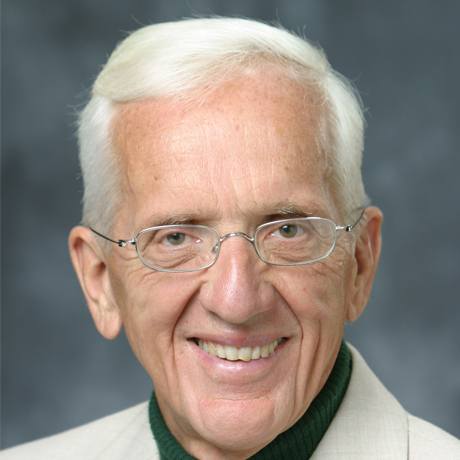The Path to Recovery through Nutrition: Our Most Important Defense Against COVID-19
(Part 2)
Commentary by T. Colin Campbell, PhD
April 27, 2020
This is a follow-up to my earlier commentary on a relatively unknown way to think about COVID-19. Before reading further, it would be helpful, if you have not done so, to read or re-read that earlier commentary. In the meanwhile, let’s not forget to play it safe and follow the social distancing and other recommendations of the Centers for Disease Control and Prevention (CDC).
Here, I ask a question I’ve heard on more than one occasion. Is it possible, with this crisis, that Nature is reminding us once again that we might have strayed too far from her fundamentals?
As summarized in my earlier commentary, does the low protein, whole food, plant-based (WFPB) diet – known to comprehensively prevent, and sometimes even reverse a broad range of chronic degenerative diseases – act in a similar way to minimize viral diseases? In the laboratory, we showed that animal protein promotes liver cancer initiated by the hepatitis B virus (HBV), giving a striking response that was similar to carcinogen-initiated liver cancer. In a follow-up human study in China[1] and Taiwan[2], consumption of plant-based food (estimated by several factors) associated with inactive hepatitis B virus (antibodies), while animal-based food (albeit, a relatively small amount) associated with active virus (HBV antigen). In brief, plant-based food favors development of immunity against the hepatitis B virus.[3]
Although specifically investigating hepatitis B virus, there is substantial evidence that, unlike drugs targeted to specific disease endpoints, nutrition, the kind that benefits a range of chronic degenerative diseases, also should be expected to affect a range of viral diseases as well.
To elaborate a little more on this important point, I will share a recent exchange with a physician friend of mine. His comments to me are similar to what others will likely say, so I thought it might help to spend a little time discussing his criticism. He wrote to me the following:
“But hepatitis B virus is a totally different viral entity than COVID-19 and it’s an unacceptable scientific extrapolation to assume what worked for one virus will work for another. In the same way that we cannot use Tamiflu or other conventional anti-virals against the coronavirus – because the Tamiflu-like drugs were designed to act on influenza viruses (a different viral entity with different surface enzymes than the coronavirus) – what proof do you offer that what may have been effective against hepatitis B virus will help with the coronavirus?”
The beginning of my response rests on this important fact: Tamiflu (or any other drug) does not behave like nutrition. A whole food, plant-based diet, rich in phytochemicals and other nutrients, generates a wholistic response by enabling the body to achieve optimal health through complex and synchronous metabolic pathways, that ultimately affect every aspect of its functioning.[4] This is why a plant-based diet addresses a wide range of chronic conditions. Tamiflu, in contrast, is a targeted therapy, designed to deal with a narrow subset of flu viruses, at most. Through the lens of Tamiflu, the differences between viruses become important, because it is a technological solution focused on a specific viral endpoint. In contrast, when we give the body the proper nutrition so that it can optimize its countless functions, this optimization includes the body’s immune system[5] – a system that is highly adaptable.[6]
As shown by our combined research investigations in China and in the lab, along with findings from many other studies, a wide range of chronic diseases are similarly impacted when confronted with a similar type of nutrition – whether the standard American Diet (SAD) or a whole foods, plant-based diet. Compared to the logic for using targeted drugs, this is a very different type of causality. From another perspective, let’s say that among this range of diseases affected by diet, we discover that we can treat one of these diseases by a targeted drug. Since this drug, intentionally, was not designed to work on other diseases, this is not a sufficient argument to dismiss nutrition whose property, in contrast, is to work on a broad variety of chronic disease conditions. It just so happens that plant-based nutrition, by definition and by demonstration, acts comprehensively on a wide range of chronic conditions.
My friend’s critique rests on the assumption that there is a biological equivalence between an agent such as Tamiflu, and the wholistic[7] effects of diet. And keep in mind that the wholistic effects of diet are actually expressed through the body, working to achieve optimal health. So my friend is really equating a singular human-created technology – Tamiflu – with the body’s natural ability to produce and sustain health under ideal conditions (the right nutrition).
As noted earlier, our studies in China[8] on diet and lifestyle about three decades ago included research on the hepatitis B virus, whose powerful ability to cause liver cancer, we learned, is strongly controlled by nutrition. This research suggests a larger nutrition-viral connection.
Although different viruses produce different outcomes, we should not lose sight of their common features, especially the manner in which they infect a host. Viruses, having their own genetic components (DNA, RNA), penetrate our body’s healthy cells and then use their machinery, in various ways, to reproduce their viral selves. In response, our exceptionally adaptable immune system then mounts a counterattack against the invading virus by increasing production of natural killer cells, increased reactive oxygen molecules, and an increased activity of an enzyme system that is a source of these reactive oxygen molecules, functions which we investigated in our laboratory to explain the effect of nutrition.
And finally, I would like to re-emphasize my earlier comment that the nutritional benefits of the whole food, plant-based (WFPB) diet are likely to appear quickly, within days, e.g., lower serum cholesterol (LDL, total), reduced body weight, and decreased blood pressure. This could be especially significant for those currently vulnerable to COVID-19, but not yet infected.
This connection of nutrition with a viral disease is just one more aspect of the nutritional effect, which, when done right through a WFPB diet, might offer an important, and to date unappreciated, path to fight the COVID-19 pandemic.
We now know that diets composed of animal-based and processed foods—the antithesis of the WFPB diet—reflect a long-standing and serious misunderstanding of the science of nutrition[9]. As a result, we have been creating monumental consequences that are socioeconomically, ethically, morally, and historically reprehensible. I can think of many examples and would ask you to consider how these seemingly unrelated examples relate to the food we eat.
Why, for example, do medical schools fail to teach nutrition? Why is there no mechanism for reimbursing primary care physicians and their colleagues for advisory services in nutrition? Why, among the 27 U.S. National Institutes of Health (NIH), is there not a single institute dedicated to nutrition? Why do we ignore the approximate 150,000 preventable deaths per month (medical errors, prescription drugs, and nutritionally-caused chronic diseases)[10] when we are so concerned, and rightly so, about the tens of thousands of COVID-19 deaths?[11] Why do we spend more per capita on drugs than any economically developed country in the world, while ranking 44th in life expectancy?[12] Why is the consumption of livestock the #1 cause of global warming?[13] Why is our healthcare system so expensive, while failing to adequately insure all of our citizens? Why are we able to buy politicians beholden to this system? I can easily think of many similar questions, all of which arise from our lack of understanding of nutrition.
I know well there are talking heads in our media who understand these concepts, after having read my book The China Study—some even having spoken to me. Yet, not once have I heard them mention the word “nutrition.” Why is this? If we can’t tell people the truth of nutrition in a time of crisis, when so many are suffering from COVID-19, and we must restart our economy to avoid yet further suffering, when will we have the courage to do so? Trillions have been spent on the suppression of this truth. When might we decide that human life is more valuable than the profits of corporations and the power of politicians?
Read Dr. Campbell’s open access, peer-reviewed publication (Jan, 2021) that supports this commentary.
Take steps today to protect yourself from the worst effects of COVID-19 and help keep the curve of hospitalizations flattened so we can restart the economy. Sign up today to find out more about the Global 10-Day Jumpstart – an online program offering seminars, daily emails, cooking videos, interactive discussions with medical doctors and more.

About the Author
T. Colin Campbell, PhD, co-author of the New York Times bestselling book The China Study, is a bio/nutritional researcher with over 60 years of experience in the field of nutritional science. Dr. Campbell is the Jacob Gould Schurman Professor Emeritus of Nutritional Biochemistry at Cornell University, and is the founder of the T. Colin Campbell Center for Nutrition Studies and the online Plant-Based Nutrition Certificate in partnership with eCornell.
Acknowledgements
Nelson Campbell, who contributed to this article, and the many researchers from those earlier years who participated in my research group.
References
- Campbell, T. C., Chen, J., Liu, C., Li, J. & Parpia, B. Non-association of aflatoxin with primary liver cancer in a cross-sectional ecologic survey in the People’s Republic of China. Cancer Res. 50, 6882-6893 (1990).
- Chen, J., Campbell, T. C., Li, B. & Peto, R. Diet, life-style and mortality in mainland China and Taiwan. A study of the characteristics of 85 Chinese counties. (Harvard University, 1998).
- Chen, J., Campbell, T. C., Li, B. & Peto, R. Diet, life-style and mortality in mainland China and Taiwan. A study of the characteristics of 85 Chinese counties. (Harvard University, 1998).
- Campbell, T. C., and Howard Jacobson. Whole: Rethinking the Science of Nutrition. BenBella Books. 2014.
- I refer to that condition when the host experiences a new viral infection that has never been seen before (many, most?), whereby the immune system finds a way to custom make the appropriate antibody that may in some circumstances also show a shared reactivity with closely related viruses.
- Campbell, T. C. & Campbell, T. M. I. The China Study, startling implications for diet, weight loss and long-term health. pp. 184-187, 2006.
- The spelling of ‘holism’ with the ‘w’ is meant to distinguish the word from “holism.” A ‘wholistic’approach involves seeing the whole as greater than the sum of its parts. (Campbell, T. C., and Howard Jacobson. Whole: Rethinking the Science of Nutrition. BenBella Books, p. 47- 48, 2014.)
- Campbell, T. C., Chen, J., Liu, C., Li, J. & Parpia, B. Non-association of aflatoxin with primary liver cancer in a cross-sectional ecologic survey in the People’s Republic of China. Cancer Res. 50, 6882-6893 (1990).
- Campbell, T. C. Nutrition renaissance and public health policy. J. Nutr. Biology 3(1), 124-138 (2017). J Nutr Biol. 2017;3(1):124-138. doi:10.1080/01635581.2017.1339094 (2017).
- Campbell, T. C. The China Study: The Most Comprehensive Study of Nutrition Ever Conducted and the Startling Implications for Diet, Weight Loss and Long-Term Health. 2016. Print.
- CDC, COVID-19 Forecasts. https://www.cdc.gov/coronavirus/2019-ncov/covid-data/forecasting-us.html#anchor_1587397564229
- OECD (2020), Life expectancy at birth (indicator). doi: 10.1787/27e0fc9d-en (Accessed on 23 April 2020)
- Goodland, Robert, & Jeff Anhang. Livestock and Climate Change. https://awellfedworld.org/wp-content/uploads/Livestock-Climate-Change-Anhang-Goodland.pdf



